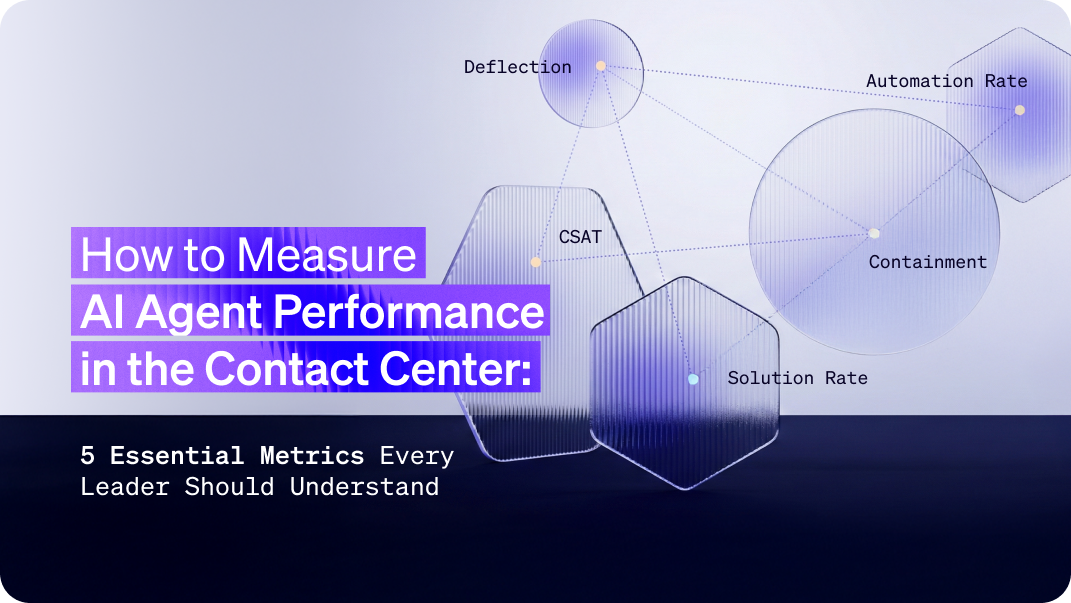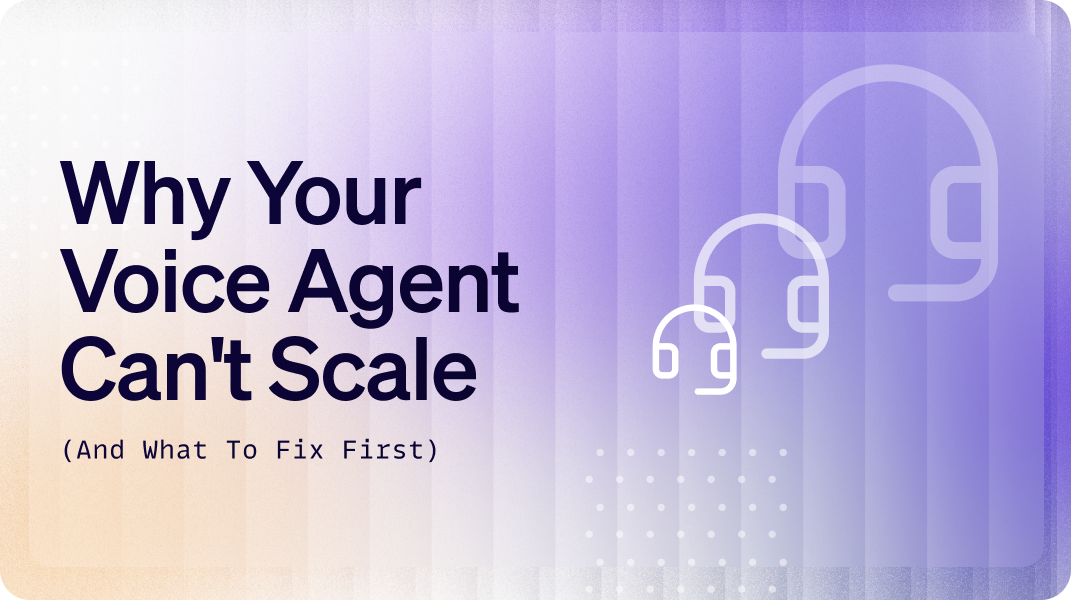While Kore.ai offers many features and integrations, the lack of dedicated support can leave businesses feeling stuck and struggling with complex implementations. This can lead to delays and inefficiencies, especially for organizations looking to scale their artificial intelligence (AI) projects quickly and effectively.
Another common issue is that Kore.ai’s rigid structure can limit customization, making it difficult for businesses to create conversational AI systems customized to their unique needs. This is particularly challenging for companies operating in fast-changing environments where agility is crucial.
Rasa provides a strong alternative by combining a flexible platform with dedicated support throughout the AI development process. Our approach gives businesses complete control over their AI systems, allowing them to fine-tune every interaction to meet specific business goals like improving customer support, optimizing internal processes, or driving digital transformation.
In this blog, we’ll explore eight leading alternatives to Kore.ai, each offering unique strengths and capabilities. From platforms that excel in customization to those that provide extensive integration and scalability, we’ll cover the key features and benefits that make these solutions worth considering. By the end, you’ll clearly understand which platform best fits your organization’s needs.

How to Spot a Top-Performing Conversational AI Platform
Finding the right conversational AI platform involves more than just comparing features; it requires understanding how well a solution can adapt to specific business needs. The best generative AI platforms allow businesses to easily customize their systems, handle growing demand, and offer reliable support to ensure smooth deployment and performance.
Customization Capabilities
Effective customization is important when developing conversational AI systems with diverse and complex requirements. Leading platforms allow businesses to design workflows, create custom dialogue systems, and integrate seamlessly with existing business applications. Creating solutions that fit your company’s operational framework and deliver meaningful user interactions is important.
Growth Opportunities
Scalability is crucial for businesses that need their AI systems to handle increasing users and use cases. Platforms like Rasa are designed with scalability in mind, offering features such as distributed deployments and modular architecture that allow companies to scale horizontally and vertically. This means that whether a business needs to support a sudden surge in customer queries or expand its AI capabilities to new departments, the platform can handle it without performance degradation.
On the other hand, platforms that lack scalability can struggle under high demand, leading to slow response times and complicating the user experience. Scaling efficiently ensures businesses can continue innovating and expanding their AI initiatives without technology constraints.
Strong Customer Support
A top-performing platform provides reactive support to troubleshoot issues and proactive guidance through training, resources, and community engagement. Rasa offers Resident AI Engineers who collaborate directly with client teams to ensure smooth implementation and continuous improvement.
Our active community of developers and AI practitioners also contributes to ongoing platform enhancements, providing users with shared knowledge and innovative solutions. This level of support ensures you can fully leverage Rasa technology to achieve business goals.
Kore.ai Competitors and Alternatives to Explore
For organizations exploring alternatives to Kore.ai, finding the right platform often means balancing customization, scalability, and support. In this section, we’ll look at eight platforms that stand out as strong alternatives, each offering unique features and benefits that cater to different business needs.
1. Rasa
Rasa excels in flexibility and customization, making us a strong choice for enterprises seeking full control over their conversational AI systems. Unlike closed-source platforms, our flexible framework allows companies to build next-gen AI assistants at a low price. This control extends to data security and deployment options, which can run on-premises or in a private cloud-critical for organizations in highly regulated industries.
Strengths:
- Full control over AI systems and data.
- Customization that aligns with business logic.
- Experts available to help you build and scale quickly.
Real-world examples demonstrate how companies have successfully implemented Rasa to address their conversational needs. Deutsche Telekom transformed its Common Service Desk chatbot using Rasa’s CALM framework, integrating multiple backend systems to create a sophisticated support tool that replaced traditional service desk functions.
Common misconceptions: Some believe Rasa’s flexibility comes with a steep learning curve. However, our extensive documentation, many video tutorials, active community, and professional support guide users through the development process, making it accessible for teams from small businesses to enterprises.

2. IBM Watsonx Assistant
IBM Watsonx Assistant is known for its strong brand reputation and advanced AI capabilities. It integrates seamlessly with other IBM products like Watson Discovery and IBM Cloud. It offers strong natural language processing (NLP) features and pre-built integrations, making it suitable for enterprises looking for a comprehensive, enterprise-grade solution.
Strengths:
- Seamless integration with the IBM ecosystem.
- Strong NLP capabilities for advanced analytics.
Considerations:
- Limited flexibility in customization.
- High costs and complicated setups can pose challenges for smaller teams.
3. Yellow.ai
Yellow.ai stands out for its user-friendly interface and ability to handle complex conversational flows. It provides a range of pre-built templates and modules that streamline the development process, making it accessible for teams with varying levels of technical expertise.
Strengths:
- Easy-to-use interface with pre-built templates.
- Quick deployment for businesses seeking rapid solutions.
Considerations:
- Less adaptable for highly customized use cases.
- Less control over complex workflows.
4. Botfuel
Geared towards e-commerce and customer engagement automation, Botfuel offers a specialized focus that can benefit businesses looking to optimize their customer interaction channels. Its platform is designed to handle tasks like product recommendations and order tracking, providing a custom solution for online retail environments.
Strengths:
- Focused on customer engagement automation.
- Streamlined for product recommendations and tracking.
Considerations:
- Less versatility for businesses with broader needs.
- May struggle with scalability in complex environments, especially for large enterprises with many use cases. You don’t want your conversational flows to look like a plate of spaghetti.
5. boost.ai
boost.ai is known for its strength in creating virtual agents capable of handling high volumes of customer interactions. This makes it a strong choice for enterprises focused on customer satisfaction. The platform’s ability to manage large-scale deployments with a high degree of automation sets it apart from other options.
Strengths:
- Handles large-scale customer support with ease.
- Excellent for automating frequent, predictable interactions.
Considerations:
- Limited customization for more dynamic workflows.
- Less suitable for organizations requiring deep integration with internal systems.
6. Haptik
With a strong presence in the Indian market, Haptik has made a name for itself by focusing on mobile-first environments and offering solutions that fit well with local business needs. It provides a range of pre-built virtual assistants for industries like banking, insurance, and e-commerce, making it an attractive option for companies operating in mobile-centric markets.
Strengths:
- Mobile-first design for local industries such as banking and e-commerce.
- Strong presence in the Indian market.
Considerations:
- Pre-built solutions may not scale well for global enterprises.
- Broader flexibility is available with platforms like Rasa, which support diverse global markets.
7. Microsoft Bot Framework
Microsoft Bot Framework is highly regarded for its seamless integration with Microsoft’s ecosystem, including Azure services and Office 365. It offers a flexible environment for developers to build, test, and deploy AI chatbots, supported by extensive documentation and a strong developer community.
Strengths:
- Deep integration with Azure and other Microsoft products.
- Strong developer community with extensive resources.
Considerations:
- Setup and maintenance can be complex for non-Microsoft users.
- May not suit businesses looking for platform-agnostic solutions.
8. Intercom
Intercom is widely recognized for its strong UI/UX and focus on customer engagement and support. Its platform is designed for communication across customer touchpoints, making it a popular choice for businesses prioritizing customer experience.
Strengths:
- Exceptional user interface and focus on customer interaction.
- Streamlined for businesses prioritizing customer engagement.
Considerations:
- Limited in-depth AI customization options.
- May not provide the scalability needed for multi-departmental applications.
How Does Rasa Stand Out Against Other Kore.ai Alternatives?
When considering alternatives to Kore.ai, consider the conversational AI platform's long-term adaptability and scalability. Our unique architecture, commitment to flexibility, and strong support for integration set us apart from other platforms on this list. Below, we’ll explore the core features that make Rasa an exceptional choice for enterprise-level conversational AI solutions.
Long-Term Adaptability
Rasa’s architecture is designed to evolve with your business. As conversational AI needs grow and change, we offer the flexibility to continuously improve AI assistants without requiring drastic overhauls. This adaptability is essential in industries where the ability to pivot quickly is crucial to maintaining competitive advantage.
One of our key strengths is data privacy and security support, which is increasingly important in a world where data protection regulations are becoming stricter. Unlike closed-source platforms, we offer organizations full control over their data. Our technology can operate on-prem or within a private cloud for industries like finance, healthcare, and government, where regulatory compliance is necessary. This ensures that all data stays within the company’s control, reducing risk while providing strong AI capabilities.
Innovation Through Extreme Flexibility
Rasa’s framework allows businesses to push the boundaries of what’s possible with conversational AI. Rather than being locked into a rigid structure, companies using Rasa can experiment, innovate, and create highly customized solutions that meet their specific needs.
This flexibility allows organizations to implement cutting-edge features, like integrating Large Language Models (LLMs) alongside traditional natural language understanding (NLU). For example, Rasa’s CALM framework allows AI assistants to manage unexpected input, making it easier for businesses to scale their conversational capabilities without sacrificing quality. This approach ensures we remain at the forefront of conversational AI technology while allowing enterprises to innovate at their own pace.
Seamless Integration for Maximum Customization
One of our most significant advantages is integrating seamlessly with existing enterprise systems. Whether connecting to internal databases, contact center systems, CRMs, or third-party applications, Rasa’s modular architecture allows maximum customization. Businesses can implement Rasa in a way that aligns with their existing workflows and systems without sacrificing flexibility or control.
Unlike other platforms that may offer more rigid integration options, Rasa’s flexibility ensures that companies can maintain complete control over their AI systems. For example, organizations can switch between different LLMs, depending on the specific use case, without being tied to a single provider.
Why Rasa is the Best Kore.ai Alternative
Rasa is a top alternative to Kore.ai with unparalleled flexibility, customization, and control that other platforms struggle to match. Our framework lets you input your business logic with seamless integration and long-term scalability.
Our CALM framework provides advanced conversation repair capabilities and easily handles deviations. This allows AI-powered virtual assistants built on Rasa to perform reliably in complex scenarios, such as those faced by enterprises with multinational operations or requiring real-time interconnected omnichannel touchpoints.
Rasa allows you to choose which language models work best for your needs without locking you into one provider. Our no-code tools in Rasa Studio make it easier for teams to build custom solutions without heavy coding. This contrasts with platforms like Kore.ai, where customization and scalability often come with high costs and limitations on flexibility.
If you’re ready to unlock the full potential of your AI assistant with a platform that delivers flexibility, control, and innovation, connect with our team today.






